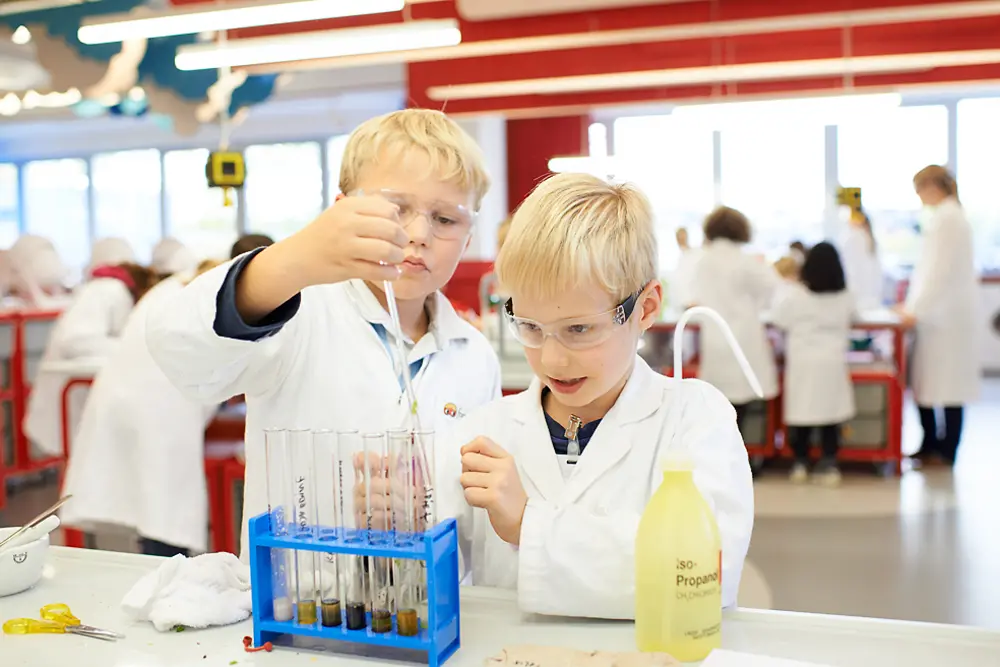Access to education and encouraging equality within educational systems are essential requirements for successful learning and provide a foundation for later life. Recognizing the importance of good education, the Henkel initiative Researchers‘ World, has welcomed young students from all over the world to take their first steps towards science and research by participating in hands-on experiments.
The Researchers‘ World’s students discover the chemistry behind adhesives, laundry, home and haircare through hands-on experiments.
Forscherwelt in a nutshell
“Forscherwelt” (in German), which roughly translates to “Researchers’ World”, is a global initiative created by Henkel that aims to introduce science to children in a fun and interactive way. The experiments, specifically designed for children, align with Henkel‘s business units, and encourage them to explore the chemistry behind adhesives, detergents, home care and hair care. Additionally, sustainability is also a key learning objective embedded in the Researchers’ World’s courses. Here, the children are taught how to conserve raw materials and energy, as well as how to recycle and separate waste.
Moreover, experiments designed to find out what adhesives are made of, how to separate colors, or how to identify limestone in toothpaste are just a few examples of many fascinating experiments conducted in the program’s classrooms around the world.

















